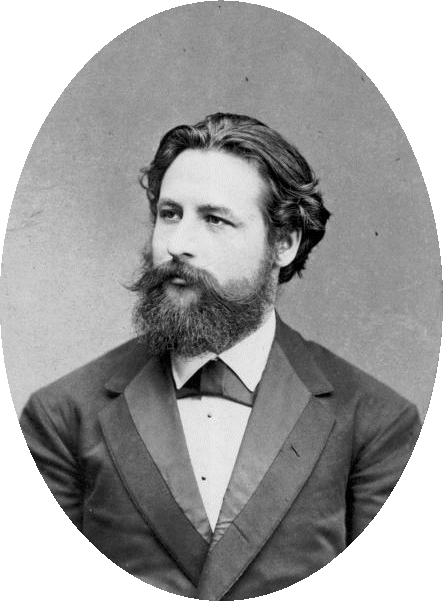Heinrich Hofmann (composer) on:
[Wikipedia]
[Google]
[Amazon]
 Heinrich Karl Johann Hofmann (13 January 1842,
Heinrich Karl Johann Hofmann (13 January 1842,
 Heinrich Karl Johann Hofmann (13 January 1842,
Heinrich Karl Johann Hofmann (13 January 1842, Berlin
Berlin ( ; ) is the Capital of Germany, capital and largest city of Germany, by both area and List of cities in Germany by population, population. With 3.7 million inhabitants, it has the List of cities in the European Union by population withi ...
– 16 July 1902, Groß-Tabarz, present-day Thuringia
Thuringia (; officially the Free State of Thuringia, ) is one of Germany, Germany's 16 States of Germany, states. With 2.1 million people, it is 12th-largest by population, and with 16,171 square kilometers, it is 11th-largest in area.
Er ...
) was a German composer
A composer is a person who writes music. The term is especially used to indicate composers of Western classical music, or those who are composers by occupation. Many composers are, or were, also skilled performers of music.
Etymology and def ...
and pianist
A pianist ( , ) is a musician who plays the piano. A pianist's repertoire may include music from a diverse variety of styles, such as traditional classical music, jazz piano, jazz, blues piano, blues, and popular music, including rock music, ...
. He was a pupil of Theodor Kullak
Theodor Kullak (12 September 1818 – 1 March 1882) was a German pianist, composer and teacher.
Background
Kullak was born on 12 September 1818, in Krotoszyn. He began his piano studies as a pupil of Albrecht Agthe in Poznań. He progressed suf ...
, Eduard Grell
Eduard Grell or August Eduard Grell (6 November 1800 – 10 August 1886) was a German composer, organist, and music teacher.
Grell was born in Berlin. Among his early teachers were Carl Friedrich Zelter and Carl Friedrich Rungenhagen. On Zelt ...
, Siegfried Dehn
Siegfried Wilhelm (von) Dehn (24 or 25 February 1799 – 12 April 1858) was a German music theorist, editor, teacher and librarian.
Born in Altona, Hamburg, Altona, Dehn was the son of a banker and learned to play the cello as a boy. Intent on ...
and Richard Wüerst
Richard Wüerst (22 February 1824 – 9 October 1881) was a German composer, music professor and pedagogue.
Wüerst was born and died in Berlin. He was a pupil of Carl Friedrich Rungenhagen at the Prussian Academy of Arts and a pupil of Felix Me ...
. His ''Frithjof Symphony'' (1874), a musical realization of the legend Friðþjófs saga hins frœkna, was one of the most frequently performed orchestral works in Germany during the late 19th century. In addition to orchestral music, he also wrote several opera
Opera is a form of History of theatre#European theatre, Western theatre in which music is a fundamental component and dramatic roles are taken by Singing, singers. Such a "work" (the literal translation of the Italian word "opera") is typically ...
s, some lieder
In the Western classical music tradition, ( , ; , ; ) is a term for setting poetry to classical music. The term is used for any kind of song in contemporary German and Dutch, but among English and French speakers, is often used interchangea ...
, choral music
A choir ( ), also known as a chorale or chorus (from Latin ''chorus'', meaning 'a dance in a circle') is a musical ensemble of singers. Choral music, in turn, is the music written specifically for such an ensemble to perform or in other words ...
, and works for solo piano. After his death, his music fell largely into obscurity. He was not a very famous composer in his time. Hofmann lived during the late 19th century, around near the 20th century.
External links
* 1842 births 1902 deaths 19th-century German pianists German opera composers German male opera composers Pupils of Siegfried Dehn German male pianists 19th-century German male musicians Pianists from the Kingdom of Prussia {{germany-composer-stub